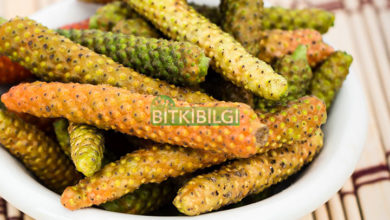Spastic colon
It is a disease in which abnormally increased spontaneous movements of the small and large intestines are observed and is usually increased by emotional stress.
Irritable bowel syndrome is observed as a combination of abdominal pain and altered bowel movements. The cause of the event is a disorder in the movements of the muscles in the large intestine (motility); however, there is no change in the bowel structure.
The disease is usually seen in women and occurs most frequently between the ages of 20 and 30. Factors that facilitate the development of spastic colon include consuming low-fiber foods, emotional distress, and using laxatives (diarrheal) medications.
Toplumun yaklaşık olarak %10-20 sinde irritabıl barsak sendromu ile uyumlu bulgular bulunmaktadır; ancak bunların çok az bir kısmı tedavi için sağlık kuruluşlarına müracaat etmektedir.
Protection
For people at high risk of developing irritable bowel syndrome, it may not always be possible to prevent symptoms.
Symptoms
- diarrhea
– diarrhea – constipation periods (approximately 6-month periods)
– Abdominal pain that goes away with the start of bowel movements and occurs after meals
– intermittent abdominal tenderness
– feeling of bloating, gas and fluid movements in the abdomen
– nausea
– vomiting
– loss of appetite
– emotional stress
– depression
Tests performed for diagnostic purposes usually do not reveal any abnormalities. Patients over the age of 40 who present with the above complaints may require endoscopy to eliminate the possibility of colon cancer. Endoscopy may also be required in younger patients with persistent diarrhea.
However, the complaints of the patients are typical.
The aim of treatment is to eliminate the complaints. Making changes in diet helps to relieve the complaints in some patients. There is no diet that will be good for every patient.
It may be beneficial to increase the fiber content of your diet and avoid foods and beverages that can stimulate your digestive system (caffeinated beverages). Other possible treatment methods:
– anxiety-relieving practices (such as regular exercise)
– taking anticholinergic medications before meals
– psychiatric treatment in cases of severe anxiety and depression
Conclusion
Irritable bowel disease can last a lifetime; however, symptoms can be reduced or eliminated completely with appropriate treatment.
Problems that may occur
– nutritional disorders
– restlessness
– dehydration (loss of water)
– depression
olive leaf, ox eye, basil, shepherd's purse, rosemary, mint, oak tree leaf, rose leaf, sage, thyme, hawthorn flower, anise, mistletoe and mayonnaise. All of the herbs are taken separately or mixed and drunk with 1-2 glasses of lemon on a full or empty stomach.
2. recipe
Before going to bed at night, boil 15-20 leaves of hunger herb and drink it.
3. recipe
50 gr. hawthorn flower
50 gr. olive leaves
50 gr. mistletoe
50 gr. rosemary
50 gr. Indian okra flower
50 gr. lemon balm, all mixed, boiled in a pinch on an empty stomach and drink 1 glass plain, 2 glasses with lemon on a full stomach.
4. recipe
Pierce a clove of garlic with a needle and swallow it three times a day on an empty stomach.
5. recipe
Vegetables and plenty of salad should be consumed with meals.
6. recipe
50 gr. coriander
50 gr. harmala seeds
50 gr. anise
50 gr. Fennel is crushed and turned into powder. Eat 1 teaspoon on an empty or full stomach.
7. recipe
Pear
Apple
Orange peel
Boil the same amount of parsley and drink 1-2 glasses on an empty or full stomach.
8. recipe
Lemon, orange, grapefruit, carrot, celery, parsley, onion, garlic, cherry, strawberry,
Leeks, zucchinis and cucumbers are eaten in large quantities.

